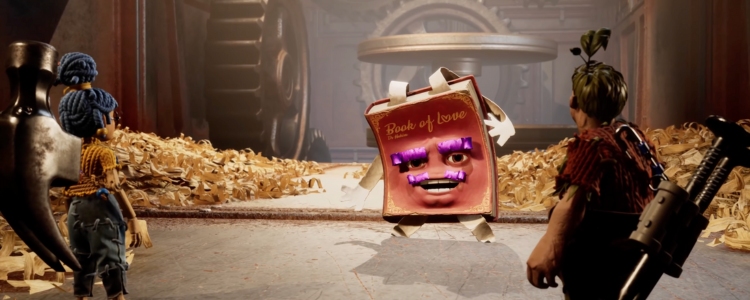It Takes Two: Strategies for Building the Best Teamwork and Overcoming Challenges

In today's fast-paced and increasingly complex work environments, the ability to forge effective teams is more crucial than ever. Effective teamwork not only drives organizational success but also fosters an engaging and supportive workplace culture. However, building a cohesive team and maintaining its efficiency through challenges requires careful strategy and dedication. This article provides a detailed exploration of essential strategies for constructing strong teams and navigating the inevitable challenges they face with agility and confidence.
Understanding the Foundations of Effective Teamwork
Before diving into the specifics of overcoming teamwork challenges, it's important to establish what makes a team effective. At its core, effective teamwork is the result of several foundational elements:
- Clear Goals: Ensuring that every team member understands both the overall objective and their individual roles is crucial for synchronous effort and focused outcomes.
- Open Communication: A transparent communication channel allows for shared ideas, feedback, and adjustments, which are essential for iterative success and engagement.
- Mutual Respect: Teams function best when every member values the perspectives and contributions of their colleagues, fostering a collaborative environment.
- Adaptability: The capacity of top-performing teams to adapt effectively to evolving situations is a key trait.
Building upon these basic principles can lead to the development of a robust framework for any team setting.
Recruiting and Assembling the Right Team

The initial step in building an exceptional team is selecting the right individuals. Each team member should not only possess the required professional skills but also the ability to collaborate effectively. Here are some key considerations:
- Complementary Skills: Look for a combination of diverse skills that complement each other. This diversity encourages innovative solutions and covers a broad array of tasks.
- Team Dynamics: Assess how potential members might interact. Understanding personality types and how they might mesh can preempt conflict and promote harmony.
- Potential for Growth: Consider each candidate's potential for personal and professional development. A team that grows together stays effective longer.
Once the team is assembled, invest in team-building activities to forge connections and communication pathways that will critically support forthcoming challenges.
Establishing Roles and Responsibilities Clearly
One common issue that teams encounter is ambiguity in roles and responsibilities. To mitigate this from the onset:
- Define Roles Clearly: Each member should have a clear understanding of their responsibilities. This minimizes overlaps and gaps in the team's efforts.
- Set Expectations: Alongside roles, expectations regarding outcomes, deadlines, and communication should be explicitly stated.
- Regularly Reevaluate: As projects progress and teams evolve, regularly reassess and adjust roles and responsibilities to fit the changing landscape.
Clearly delineated roles empower team members to focus and excel in their specific tasks, contributing to the team’s overall efficiency.
Fostering a Collaborative Team Environment

Collaboration is the heartbeat of effective teamwork. It involves more than just working together; it's about creating a synergistic environment where collective effort translates to superior results. Enhance collaboration by:
- Encouraging Open Dialogue: Make regular meetings a platform for voicing thoughts and concerns, allowing for collective strategizing and innovation.
- Rewarding Team Efforts: Recognize and reward collaboration. This not only encourages a united front but also reinforces the value of joint effort.
- Utilizing Collaborative Tools: Leverage technology to improve team collaboration. Tools like shared documents, communication apps, and project management software can streamline coordination and information sharing.
Such strategies not only help in maintaining transparency but also ensure that every team member is onboard and engaged.
Managing Conflicts Effectively
Conflict is inevitable in any team setting. Nevertheless, the approach used to handle disputes can either strengthen or undermine the cohesion of a team. Effective conflict resolution includes:
- Addressing Issues Early: Recognize and address conflicts early before they escalate into bigger problems.
- Encouraging Constructive Discussion: Facilitate a culture where conflicts are discussed openly and constructively without fear of reprisal.
- Focusing on the Problem, Not the Person: When resolving conflicts, focus on the issue at hand rather than personal attacks, which can help maintain professional respect.
Efficient resolution of conflicts not only addresses the present problems but also establishes a crucial base of trust and respect essential for sustained success in team collaboration.
Monitoring Team Performance and Making Adjustments

Continuous improvement should be a goal for every team. Regular reviews of team performance against set goals and objectives provide insight into areas that need adjustment. Consider:
- Regular Feedback Loops: Implement mechanisms for regular feedback, both from team leaders and peers, to foster continual improvement.
- Adjusting Strategies: Be prepared to pivot strategies or redistribute resources as necessary to address underperformance or changing circumstances.
- Maintaining Flexibility: Allow some degree of flexibility in how tasks are accomplished, catering to different work styles and fostering innovation.
Through consistent monitoring and willingness to adapt, teams can stay aligned with their objectives and remain agile in response to any shifts in their operational environment.
Building and sustaining effective teamwork is an ongoing process that demands attention to the complex interplay of individual talents, ambitions, and personalities. By applying these strategies thoughtfully, organizations can not only overcome teamwork challenges but also harness the true power of collaborative effort towards achieving remarkable successes.






